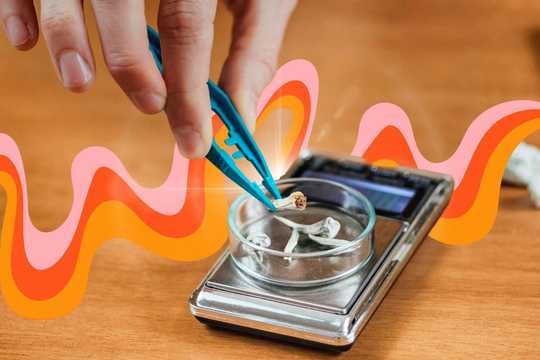Everyone has bad days. We bite our tongues while eating breakfast. We fight with our partner about who left dirty socks on the floor. We have disagreements with coworkers about project plans. A family member gives distressing health news. A driver cuts us off in congested traffic.
Follow your Curiosity
Sign up to receive our free psychedelic courses, 45 page eBook, and special offers delivered to your inbox.All these scenarios create difficult emotions. Sometimes, suppressing those feelings is easier because then we don’t have to face the negative experience of expressing these emotional responses.
There are many reasons why people bottle up their emotions. It commonly deemed socially unacceptable and can be perceived as unprofessional to cry and sob at work when we have a stressful day. In some cultures, the ability to cover up how you feel is seen as a strength and it is shameful to express our emotions openly. Others may have grown up in a dysfunctional family and had to withhold their emotions as a way to protect themselves from further hurt and discomfort.
We consciously numb our feelings through a variety of methods. Some use distractions like watching TV, playing video games, or scrolling through social media. Others excessively shop and overeat. Some may turn gambling, alcohol, or any number of various substances.
Suppressing emotions involves actively avoiding feelings. You are consciously preventing yourself from feeling those emotions. For this article, we will dive into the mental and physical impacts of suppressing emotions. Be sure to read the other parts of our emotion series.
Part 1: How Bottling Up Emotions Can Hurt Your Physical and Mental Health
Part 2: How To Cope With Difficult Emotions
Part 3: 10 Tips To Become Less Angry
Physical Impacts of Bottling Up Emotions
Some may not believe that bottling emotions can affect their physical health. However, the mind and body have a very tight-knit relationship. Actively avoiding our feelings can have a detrimental effect on our bodies, including our cardiovascular health.
A study examined the effect of emotion suppression on cardiovascular responses to initial and subsequent laboratory stressors. It randomly assigned 201 healthy participants to one of six conditions that included the emotions of anxiety and anger and suppression methods including experiential, expressive and control.
The subjects were asked to perform a mental arithmetic task and then were exposed to a subsequent stressor task. Cardiovascular responses were measured using systolic blood pressure, diastolic blood pressure and heart rate.
The results showed that after the second stressor, those in the experiential suppression group had more prominent systolic blood pressure responses compared to those in other conditions. The study concluded that conscious suppression of negative emotions has not just an immediate impact but also a delayed effect that causes stress-induced cardiovascular reactivity.
Actively avoiding our emotions can also increase our risk of an earlier death. A study looked at the association between emotion suppression and mortality risk including all-cause, cardiovascular and cancer over a 12-year follow-up in a US population. The researchers used data from the 2008 General Social Survey-National Death Index (NDI) cohort. The NDI included responses regarding emotion suppression that were collected in 1996.
Between 1996 and 2008, there were 111 deaths among the respondents. The results significantly showed that emotional suppression had hazard ratios (HR) of 1.35, 1.70 and 1.47 for all-cause, cancer and cardiovascular mortality, respectively. The researchers concluded that emotional suppression can potentially increase the risk of an earlier death, including death from cancer.
Mental Impacts of Bottling Up Emotions
When we suppress our emotions, they will actually come back stronger and make us feel worse than if we had faced them immediately. The more you push away painful emotions, the more painful they are when they inevitably return. It is similar to when someone tells you to stop thinking about a certain topic but it only makes you think about it more.
The results of the “white bear” experiment that showed the paradoxical effects of thought suppression were published in 1987. In the study, participants were asked to try not to think of a white bear during a 5-minute period. But if they did, they were to ring a bell. Subjects in the control group were allowed to think about anything including a white bear.
The results showed that those who were asked to suppress their white bear thoughts had more instances of white bear thoughts compared to the group who were allowed to think about anything. The researchers concluded that thought suppression has a paradoxical effect on self-control. It may even cause obsession or preoccupation with the thoughts that are being suppressed.
Emotional Suppression and Posttraumatic Stress Disorder (PTSD)
Those who suffer from PTSD are more likely to avoid negative feelings as they can trigger difficult memories, remind them of their past traumas and open up emotional wounds. However, emotional suppression can exacerbate their condition.
A study analyzed how emotional avoidance explains the relationship between PTSD symptom severity and worry. Participants included 207 college students with a history of traumatic exposure. They were asked to complete questionnaires regarding their exposure history to potentially traumatic events, the severity of their PTSD symptoms, and tendencies to avoid emotions and worry.
The results showed that the severity of PTSD symptoms was positively correlated with emotional avoidance and worry. Specifically, it found that emotional avoidance was the reason for this association. The study concluded that those who cope with their trauma and pain through emotional avoidance are more likely to suffer from chronic worrying.
Recognizing negative emotions and actively working to change their impact is more effective in reducing PTSD symptoms than suppressing them. A prospective study investigated emotion regulation and PTSD. It showed that expressive suppression was associated with more severe PTSD symptoms and cognitive reappraisal was associated with a decreased severity of PTSD symptoms. It concluded expressive suppression is an ineffective strategy for regulating emotions and suggested reducing the use of them in favor of alternative emotion regulation strategies.
Mental Health Benefits of Accepting Negative Emotions instead of Bottling Up Emotions
Lastly, a study looked at the psychological health benefits of accepting negative emotions and thoughts (habitual acceptance) through laboratory, diary and longitudinal evidence.
The diary results showed that habitual acceptance predicted psychological health including psychological well-being and life satisfaction. The laboratory results showed that habitual acceptance was significantly associated with lower negative emotional responses when participants were exposed to a standardized stressor.
Lastly, the longitudinal results showed that habitual acceptance was found to be significantly associated with a lower negative emotion experienced during daily stressors.
The study concluded that individuals who accept their emotions are more likely to have better psychological health because accepting them helps them experience less negative emotion in response to stressors.
Therefore, bottling our emotions can harm our mental and physical health. However, expressing our emotions in a healthy way may not come naturally for many of us. Tools such as meditation, mindfulness, intentional breathing and expressions of self-love and conscious awareness can all be effective ways to embracing our feelings in healthy and expressive ways.
For many, speaking with a trained therapist can help identify feelings and build effective strategies to express and manage difficult emotions. Find a mental health provider near you or online by searching our psychedelic therapy directory here.
References
- Boden, M. T., Westermann, S., McRae, K., Kuo, J., Alvarez, J., Kulkarni, M. R., Gross, J. J., & Bonn-Miller, M. O. (2013). Emotion Regulation and Posttraumatic Stress Disorder: A Prospective Investigation. Journal of Social and Clinical Psychology, 32(3), 296–314. https://doi.org/10.1521/jscp.2013.32.3.296
- Chapman, B. P., Fiscella, K., Kawachi, I., Duberstein, P., & Muennig, P. (2013). Emotion suppression and mortality risk over a 12-year follow-up. Journal of Psychosomatic Research, 75(4), 381–385. https://doi.org/10.1016/j.jpsychores.2013.07.014
- Ford, B. Q., Lam, P., John, O. P., & Mauss, I. B. (2018). The psychological health benefits of accepting negative emotions and thoughts: Laboratory, diary, and longitudinal evidence. Journal of Personality and Social Psychology, 115(6), 1075–1092. https://doi.org/10.1037/pspp0000157
- Quartana, P. J., & Burns, J. W. (2010). Emotion suppression affects cardiovascular responses to initial and subsequent laboratory stressors. British Journal of Health Psychology, 15(3), 511–528. https://doi.org/10.1348/135910709×474613
- Tull, M. T., Hahn, K. S., Evans, S. D., Salters-Pedneault, K., & Gratz, K. L. (2011). Examining the Role of Emotional Avoidance in the Relationship Between Posttraumatic Stress Disorder Symptom Severity and Worry. Cognitive Behaviour Therapy, 40(1), 5–14. https://doi.org/10.1080/16506073.2010.515187
- Wegner, D. M., Schneider, D. J., Carter, S. R., & White, T. L. (1987). Paradoxical effects of thought suppression. Journal of Personality and Social Psychology, 53(1), 5–13. https://doi.org/10.1037//0022-3514.53.1.5






